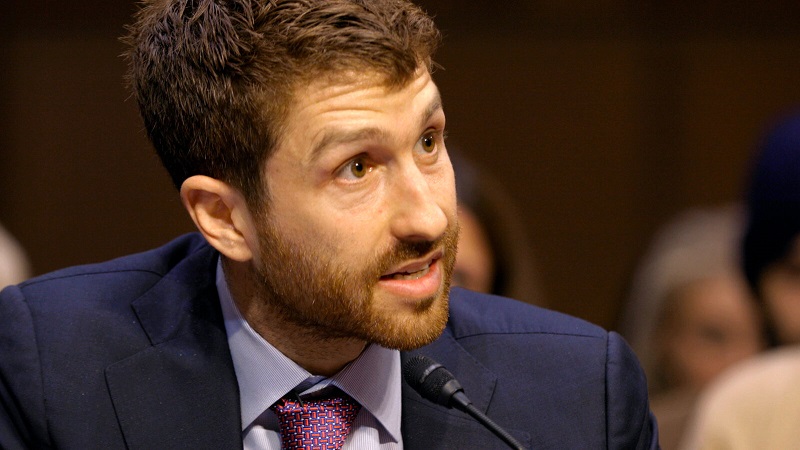Review: The Social Dilemma

The Netflix documentary details the hold popular online spaces have on our society through firsthand accounts from former executives and the developers who helped create them.
My recent decision to leave Facebook was one I didn’t take lightly. As I explained at the time, there wasn’t any unique revelation or watershed moment behind the decision. It’s more that I had wanted to step away for some time and felt it was the right thing to do, but the very nature of Facebook (no doubt combined with a lack of self-control on my part) delayed my exit.
As if on cue, The Social Dilemma (trailer) released on Netflix this past Wednesday. Just a happy coincidence of course that this documentary came out so soon after leaving a platform that consumed countless hours of my life over the past decade, but it served up a nice dose of catharsis, I must say. I recommend it both for those who may be considering their own departure from certain apps and websites and for those who’d like a refresher on the sweeping impacts these spaces continue to have on connected society.
There’s nothing particularly revelatory on offer in its hour and a half runtime. In the current attention economy, major players like Google, Facebook, Twitter, and Pinterest view humans, us, as an extractable resource. We — explicitly our preferences, desires, beliefs, impulses, and the built-in potential for these elements to be dialed up or down — are the product being sold, while advertisers are the customers. Again, nothing too earth-shattering; the basic blueprint remains essentially unchanged from the launch of Facebook 16 years ago.
What elevates this production over previous attempts at consciousness-raising, I think, are the messengers you hear from. Former Design Ethicist for Google, Tristan Harris, takes center stage as one of the leading voices in this space, having put out a number of TED talks and testified before Congress about the misaligned incentives baked into social media and how its tendency to bring out the worst in society is a feature and not a bug. You hear from senior executives at Facebook. You hear from the former president of Pinterest. You hear from literally the guy who invented the Facebook “Like” button. These aren’t bit players in Silicon Valley or industry outsiders. These are the experts who built and helped grow these platforms — and who now harbor grave doubts their creations are a force for good.
While the information they impart here shouldn’t be too surprising to those with some insight into how these platforms work, it’s nonetheless a compelling synthesis of the variegated problems that have emerged over time: increased ideological polarization, the exacerbation of fake news, election hacking, and other manipulation by bad actors. While these problems existed in some form or another prior to the inception of large-scale social networks, never before have there been tools so uniquely well-positioned to exploit vulnerabilities in our psychology. As one of the featured experts notes, “It’s not that highly motivated propagandists didn’t exist before, it’s that the platforms of today spread manipulative narratives with phenomenal ease — and without very much money.”
A rebuttal we often hear from people who argue the concerns around these spaces are overblown is that we will eventually adapt to social media, in much the same way we’ve always learned to live with and accommodate the next big thing. After all, we had to adapt to newspapers, radio, film and television, and the pre-social media internet, and this is merely the next evolution of that trend.
Tristan Harris and others address this argument head-on by emphasizing an important distinction that sets social media apart from earlier innovations. He uses the analogy of a bicycle. When the bicycle was invented, it didn’t feed addictive tendencies, it didn’t polarize society, it didn’t elevate the fake news crisis, and there weren’t concerns it would erode the fabric of democracy. That’s because a bicycle is simply a tool, a dormant device that wants nothing from us. Social media and other networked applications, in contrast, have their own goals and their own mechanisms by which to pursue those goals. Rather than a passive, tool-based technology, these are persuasion-based technologies that actively manipulate you by using your own psychology against you. The current state of our social media represents a true paradigm shift in how humanity interacts with the world and with each other.
As I conveyed in my Facebook farewell two weeks ago, because the algorithms driving these platforms prioritize overall engagement over social harmony — according to the company’s own admission and internal research — there’s an inbuilt tendency to divide users. Harris cites a well known study which found that fake stories on Twitter spread 6x faster than a true story. The takeaway is clear: fake news and sensational lies boost engagement; the truth, meanwhile, is boring. And thanks to machine learning and recommendation engines (the heart and soul of these mediums), Twitter & Co.’s facility for spreading falsehood improves by the day. Alas, this certainly helps explain absurd offline phenomena like “Pizzagate” and the notion that eating Chinese food can give you coronavirus.
As an aside, I also couldn’t help but notice an unmentioned subtext here that this whole corrosive situation in which we find ourselves came about by and large through the collective efforts of white men (and women) who unleashed these technological behemoths on society, while the divisions and other society-engulfing downstream consequences of their actions have been felt largely by Black and other minority groups across America. This isn’t an angle explored in the documentary, but I do think it’s an important one, especially as we contemplate how to best improve these platforms going forward.
Anyway, it’s worth checking out if you have the time.
Feature image credit: GETTY



Comments